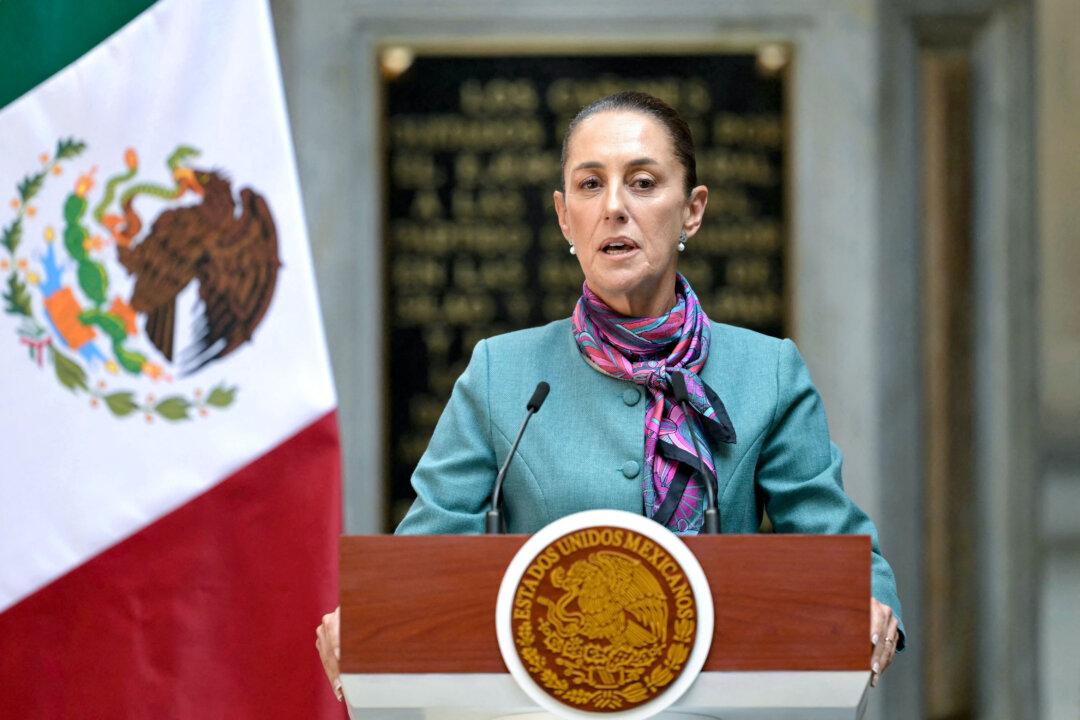Mexican President Claudia Sheinbaum said on Nov. 26 that she would seek dialogue and cooperation with President-elect Donald Trump following his renewed threat to impose a 25 percent tariff on goods from both Canada and Mexico over illegal immigration and drugs.
Sheinbaum suggested that Mexico would respond with a retaliatory tariff against the United States.





